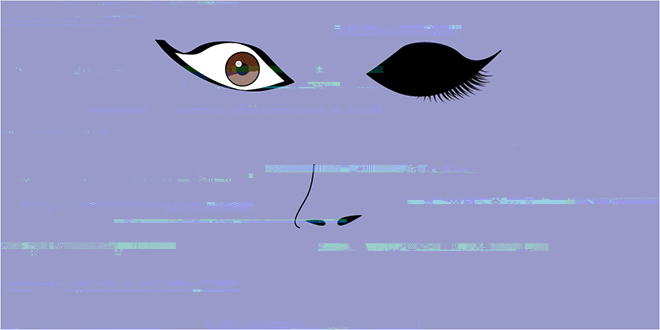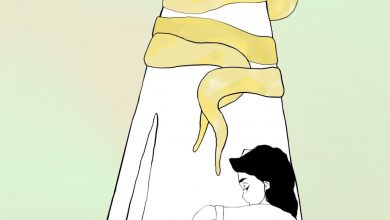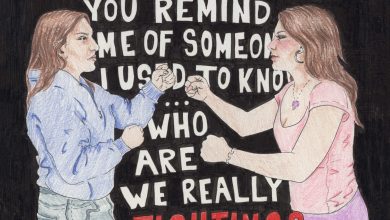His-story Lessons

Illustration by Carmen Li.
I had spent all week reading Locke – a seminal political philosopher, icon of liberalism, purveyor of the social contract. I was ready. I raised my arm. But then, without forewarning, another guy jumped into the conversation, and I wavered. My arm sunk back down by my side. I tried to interject, but could never seem to make myself loud enough.
We were discussing the social contract, where Locke noted the connections and concessions men must make in order to form a society. In that moment, it seemed to me that men were more equipped to have opinions on such a contract. Their thoughts seemed more legitimate than my own. Their prominence in academia, in history, in Locke’s political theory, extended to the 21st century classroom I found myself sitting in. History, and the study of history, made them the actors, the agents. I was relegated to the sidelines. This was exacerbated even more in our Euro-centric curriculums; as a woman of color, I was more absent from history, from the textbooks and classrooms in which I spent much of my time – and deliberately so.
The moment I found the determination to speak, I found all eyes looking at me. The sound in the classroom dropped into bewildered silence, as if scandalized by my very act of emitting noise, of occupying space. Locke had relegated a certain role to me, and to have stepped out of this role, even now, was for me to own space that didn’t belong to me. I was an illegal alien, in both history and our discussion group.
And I felt that way – hyperaware of my marginalization. I was the embodiment of imposter syndrome, feeling that my participation in this class, my knowledge of Locke in the first place, was all some lucky fluke, some great cosmic mishap or prank. Sure, some of this could be attributed to natural shyness or introversion, but some of it was how I had internalized these very roles that were prescribed to me. I was speaking out of turn. I was ashamed of speaking out of turn, and owning space that I felt did not belong to me.
Studies at Harvard ratify that such a trend was not unique to me, and hence not unique to my personality characteristics. Women on average speak for shorter amounts of time than men. James and Drakich account for this disparity in terms of status. Those assigned a higher status in that given situation will speak for longer. In a classroom focusing on a white and male dominated history, it seemed obvious that white men were attributed more status.
But that’s not the point — it’s not only about how men expect to dominate conversation. My issue is that we are the ones allotting them this status, because of how we have unconsciously listened to this history. It’s about how my personality characteristics, and my expectations of myself, are inherently shaped by sexist standards. I legitimately felt like I did not know as much about the topic of conversation, so I decided, of my own volition, to speak softer, and less. I judged myself because I had internalized that rhetoric over countless instances in life.
From seeing fewer women occupy crowds, cabinets, meetings, panel discussions, and movies, to reading less female writers for class, I had internalized that disparity as the norm. I read “men” as a word encompassing both women and men, because that is what the norm is. And when the very texts I read and the media I learned from had given me this vocabulary, how could I help but think and act in such particular terms?
Language is incredibly powerful in the messages we formulate, as the means through which we understand our world and ourselves. When the language we learn and use is exclusionary, we in turn perceive the world through an exclusionary lens. We women learn to see ourselves as intruders, aliens, obtrusive.
The patriarchy exists beyond overt wage gaps and glass ceilings. It manifests itself in the very way I perceive myself, and the others around me. It manifests itself in the things we learn and the roles we have given ourselves. It insidiously hides in the tiny worries I have over the course of a day, dampening my self-image, and my ability to open my mouth – to speak.




